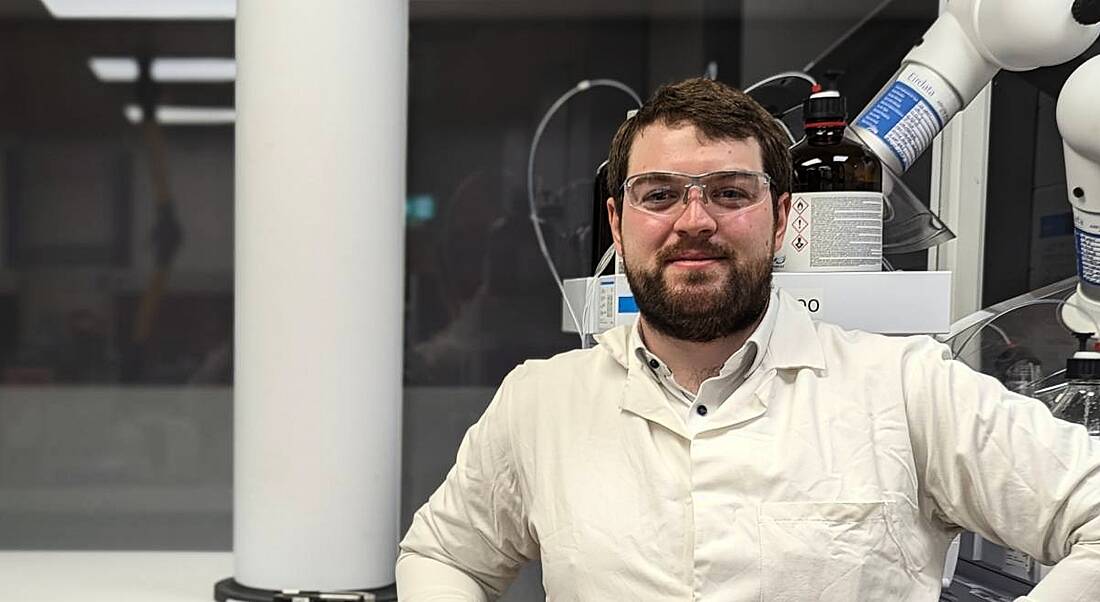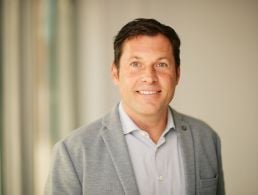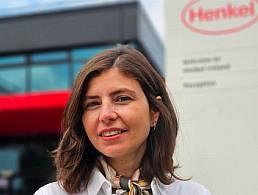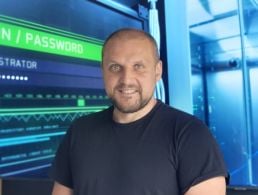Henkel’s Vincent O’Brien discusses his role as an analytical chemist and why he has more freedom in an industrial role compared to his past in academia.
Vincent O’Brien discovered his love of problem-solving while working with his father, who is a heavy machinery mechanic. He says that for as long as he can remember, he has been “working on machinery, troubleshooting problems and investigating root causes of issues”.
“Combine that love of problem-solving with my interest in science and you have me doing forensic chemistry for my bachelor’s degree in University College Cork (UCC).”
After obtaining his bachelor’s degree in 2015, O’Brien completed a master’s in analytical chemistry at UCC, where he carried out research in conjunction with TU Delft and the Netherlands Forensic Institute. Following this, he spent some time working in the Wageningen Food Safety Research Institute in the Netherlands before returning to Ireland.
In 2018, O’Brien started his current role as an analytical chemist with the Analytical Solutions Group (ASG) at Henkel’s Dublin location. As O’Brien puts it, “I haven’t looked back since”.
If there is such a thing, can you describe a typical day in the job?
Being an analytical chemist within an industrial setting is a multifaceted job. We support our production sites, pilot plant, R&D labs and end customers, so there are a lot of priorities to juggle! Thankfully I’m part of an excellent and very experienced team so we are quite good at naturally figuring out where the highest priorities are. It’s hard to describe a typical day but some of my common duties include collecting and processing mass spectral data, maintaining our scientific instruments, investigating new analytical tools to support our work, training of new colleagues and interns, attending training and seminars, as well as meeting with our customers to discuss projects.
What types of projects do you work on?
Many analytical labs have standardised methods which they run against standard samples and give out the same result day in day out. What sets our lab apart is the focus on root cause problem-solving of complex chemical interactions across hundreds of products with dozens of chemistries involved. Some days, that sample I’m analysing is an unknown residue around a bond line on a car part, the next I could be looking at identifying what product was applied to bolts that came off a ship in the Atlantic. I even get to put my forensic science degree to good use as we analyse counterfeit versions of our products. The diversity in challenges helps keep me engaged with the job and has taught me a lot in a very short space of time.
‘I felt more restricted in my day-to-day work in an academic lab than I have in industry’
What skills do you use on a daily basis?
Obviously, my problem-solving skills are a big part of my job. Often things that are obvious to me as an analyst are not for our customers, so being able to communicate the problem in clear terms and the steps we are taking to resolve it are key skills I rely on every day. Really, interpersonal skills are vital for a role like this where you will always have more customer demand than you have time for. Communicating with your customers in a clear and concise manner is essential. Everybody sees the world differently, so coming to a common ground can be challenging at times. Thankfully my customers are very patient!
What were the biggest surprises or challenges you encountered on your career path and how did you deal with them?
I was most surprised at how much freedom I had in an industrial setting. When people compare academia and industry roles, academic freedom is often touted as a key selling point for academia. I’ve had the exact opposite experience in my roles. I felt more restricted in my day-to-day work in an academic lab than I have in industry. Now, that is incredibly lab dependent, but I’ve had so many opportunities to pursue my curiosities in Henkel compared to other roles I’ve had previously.
A good case in point is that only a few months after starting in ASG, I went to my manager, Hugh Fay, as I wanted Henkel to invest in upgrading one of our machines. He supported my request and we managed to invest in newer equipment for me to run and that has made a major impact on my workflows. This has enabled me to do more in-depth analysis of our materials and even build libraries of reference spectra for us to use.
Do you have any productivity tips that help you through the day?
I always get a productivity boost from completing tasks, so getting a few quick and easy ones done is a great way to motivate myself to tackle the long and difficult tasks. Another is to be realistic in your timelines. Time and time again, I’ve seen newer analysts look at a job that takes me a day to do and think it will be the same for themselves. This is rarely the case! Problem-solving is making a few large decisions on the direction to take and hundreds of smaller course corrections that help you get to the root cause of an issue. It’s the understanding of all the smaller influences on a process that comes with experience that make you a more efficient problem-solver, but when you start out you won’t have any idea what those are!
What do you enjoy most about your job?
As cliché as it is, the people. Good colleagues make the world of difference when it comes to pulling yourself out of bed in the morning. The team I work with is full of experts in their specific analytical techniques, so it’s great to have that knowledge on tap and allows a lot of cross-pollination of ideas. We’re always looking to do the best for our customers, so we tend to use the right tool for the jobs without much ego getting in the way. If I can’t resolve an issue using my technique, my colleagues are always willing and able to support me with their techniques to help us resolve issues.
How has this role changed as this sector has grown and evolved?
The biggest shift has been the increased amount of regulation involved. We are increasingly being asked to support regulatory filings for things like REACH (Regulation on the registration, evaluation, authorisation, and restriction of chemicals). For the first time, our customer has been regulatory bodies which usually means more paperwork and oftentimes vague requirements on their part. These have been fun challenges, but they can drag on if it’s all you’re doing. Thankfully I have plenty of other interesting problems to solve in between REACH requests.
What advice would you give to those considering a career in this area, or just starting out in one?
The best colleagues are those who love what they do. When you are interested in what you do, it naturally attracts people to interact with you and gives you an opportunity to teach others about the skills you have and what you can offer them. I am incredibly lucky that one of the first analytical techniques I picked up, mass spectrometry, became a passion of mine.
I’ve had countless opportunities to share this interest and use it solve real-world problems for others. Getting here was equal parts luck and a willingness to leave behind things that did not ‘spark joy’ as Marie Kondo would say. Be willing to try many pursuits when you’re young so that you can work on something you really enjoy for the rest of your career.
10 things you need to know direct to your inbox every weekday. Sign up for the Daily Brief, Silicon Republic’s digest of essential sci-tech news.




